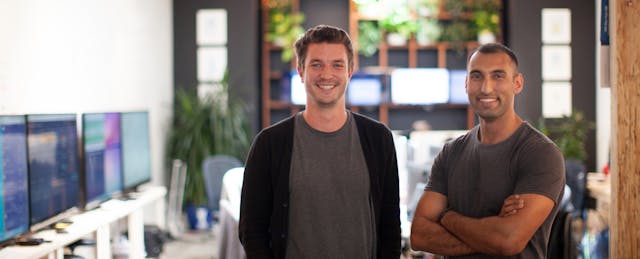Most investors want to exit their investments and get a financial return within seven years. It’s taken ClassDojo that long to announce its first paid offering.
The San Francisco-based company may be one of the last venture-backed education technology startups founded at the start of this decade that’s still alive—and growing—without making any revenue. But it’s amassed quite a footprint. ClassDojo boasts extraordinary numbers, claiming that there is at least one teacher using the tool in 95 percent of U.S. elementary and middle schools. Even more, it says one in six U.S. families with a child under 14 use the app on a daily basis.
Since its launch in August 2011, ClassDojo has held firm to its commitment to never charge teachers and schools. Today, the company finally offered a concrete plan around how it plans to sustain that model: selling a monthly subscription service for parents to use with their children at home.
Dubbed “ClassDojo Beyond School,” the app will include features that aim to help parents connect with their children through reflection activities, meditation and mindfulness exercises, along with a feedback tool that uses digital points to reward positive habits and behaviors at home.
“Kids spend half their days at home, where there are pockets of opportunities for less formal, less obvious learning opportunities,” says ClassDojo’s co-founder and CEO, Sam Chaudhary. With Beyond School, “we want to help parents turn these opportunities into learning experiences.”
The new parent offering will have several features similar to what the company currently offers schools. One of the most commonly used tools is the behavior incentivization system that lets teachers give or subtract digital points based on a student’s behavior. This functionality will be available in Beyond School, and parents will have the ability to set their own criteria in awarding points.

The digital point system also happens to be one of ClassDojos’ more contentious features. Critics charge it can be misused as a behaviorist conditioning means to shape a child’s behavior. Yet Mercedes Ford, one of the early testers of Beyond School at home, sees it differently—and says the gamified approach can be effective in encouraging positive actions and delivering immediate feedback.
The mother of a second-grade child in Florida’s Seminole County, Ford says the tool has offered a lightweight and effective way “to bring to life what our expectations are, both as teachers and as parents.” In an interview, Ford says her daughter has gone from being “disrespectful and disruptive in the classroom and home,” to learning how to hold herself responsible for her actions. Among the behaviors for which Ford awards her daughter points: folding towels correctly and cleaning her room.
“Addressing behavior in second grade is a big deal,” she adds, “and kids need a way to learn about accountability.”
There’s more to Beyond School than points. The app will also include short videos that guide parents through doing mindfulness and meditation exercises with their children. There is also a self-reflection tool where children can record video responses to pre-set question prompts like “What’s the best thing about your family?” Through these shared activities, ClassDojo’s Chaudhary hopes to “spur meaningful interactions and conversations among families, on things they may not otherwise normally talk about.”
In Beyond School, children also get their own ClassDojo avatar that they can decorate and customize. “There’s a lot of self-expression and identity that kids project into these avatars,” Chaudhary adds. “It matters a lot to them that these avatars represent the children themselves.”

From awarding points to watching videos and decorating avatars, activities on Beyond School are supposed to be short, taking no longer than a few minutes each. At most, Ford says her daughter uses it for 15 minutes a day. Ford acknowledges she spends much more time on ClassDojo’s school app to communicate regularly with her daughter’s teachers.
The company began piloting Beyond School with parents this past September, and the app will be publicly available for a monthly subscription in February 2019. The company is testing different price points, but says it will be in the single-digit figure per month. (Ford says she is currently paying $7.99 per month, but this rate is not final.)
How an education startup managed to survive seven years without making any money is, in no small part, a credit to the patience of its investors, says Chaudhary. “It’s incumbent upon entrepreneurs to explain to investors the thesis of how their business is going to be built. We were clear that this was a long-term business that will take time, and we were fortunate to find investors who aligned around that strategy.”
The company has raised $31.1 million from investors that include General Catalyst, GSV Acceleration and Reach Capital. Chaudhary says his team has been able to manage that cash at a conservative rate mainly by skimping on marketing and advertising, and keeping the team small. There were fewer than 10 employees in the company’s first several years, and today the team numbers 35 employees.


